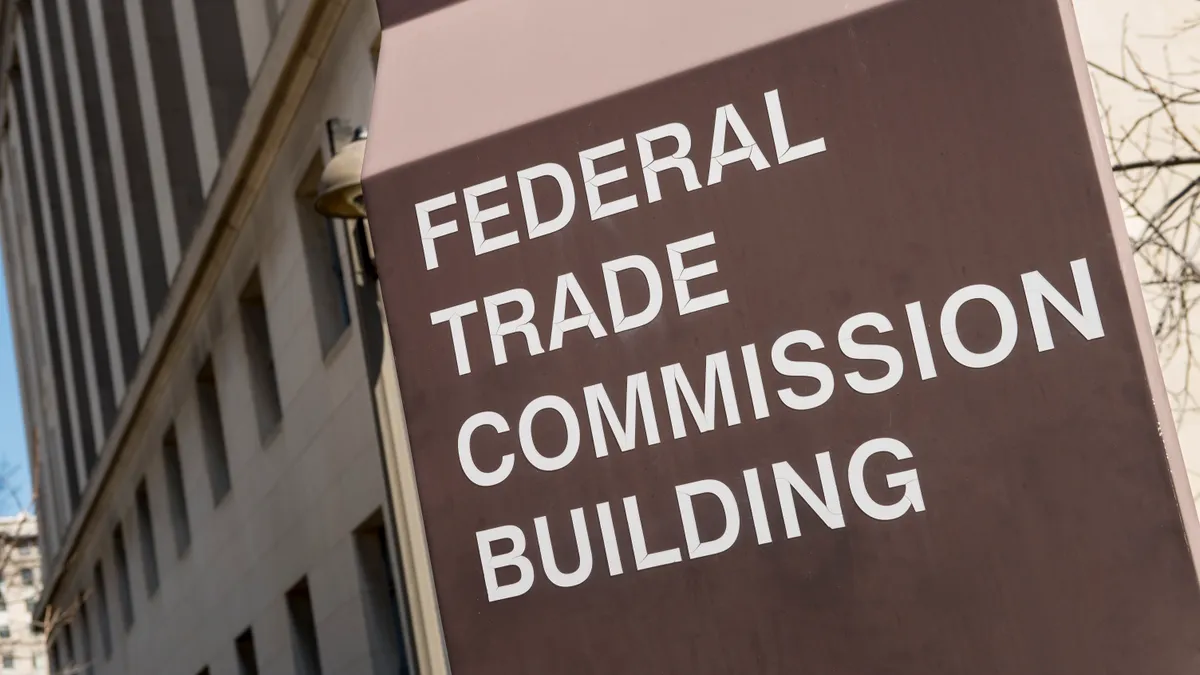The Federal Trade Commission in recent years has relied on its 3-2 majority of Democratic-appointed commissioners to undertake its most high-profile matters, like its sweeping revamp last year of the merger guidelines it publishes with the Department of Justice and its nationwide noncompete ban, which is set to take effect in September, although its reach will be curtailed by a partial stay imposed by a federal court in Texas.
In its latest high-profile action, it has the support of all five members. The agency this week announced it subpoenaed intermediaries that use AI to help companies tailor pricing based on data profiles and browsing history they compile on individual consumers.
“Firms could be exploiting this vast trove of personal information to charge people higher prices,” FTC Chair Lina Khan said in announcing the probe. “Americans deserve to know whether businesses are using detailed consumer data to deploy surveillance pricing, and the FTC’s inquiry will shed light on this shadowy ecosystem of pricing middlemen.”
What the agency calls surveillance pricing is different from what businesses call dynamic pricing, which has also raised concerns. Surveillance pricing uses data to influence what a company charges an individual as opposed to dynamic pricing, which uses data on market considerations, like demand spikes, to influence pricing.
To get a handle on the practice, the agency subpoenaed big names like Mastercard, JPMorgan Chase, Accenture and McKinsey & Co., and also a handful of lesser-known companies: Revionics, Bloomreach, Task Software and PROS.
Mastercard told The Wall Street Journal it will fully cooperate. Revionics, a Goldman Sachs-funded company, told Bloomberg Law it expects the probe to affirm that its data collection benefits consumers because it helps companies optimize prices, which can often mean lower prices.
Data details
The agency is putting the companies under a hard deadline to answer questions about the data they use in their algorithms, where they get it, how they handle it, what disclosures are used in gathering it and how they transmit it to clients, among other things.
“Describe in detail and submit documents sufficient to show any due diligence or oversight the company performs in the selection or monitoring of internal and external data sources to ascertain or verify whether the data source has provided notice to consumers and obtained consumers’ consent for the disclosure of their personal data to the company,” the agency says in one line item it asks the companies to respond to.
The agency said it’s drawing on its authority under Section 6(b) of the FTC Act to undertake the investigation. That provision authorizes the agency to conduct research purely for informational purposes, to help it understand market trends and business practices, and doesn’t need to have any connection with a specific enforcement action.
It’s this information-gathering aspect to the research that’s important, because so much is unknown about this practice, Andrew Ferguson, a Republican-appointed commissioner who took his seat in April, said in a statement he released concurring with the decision to probe the companies.
“Even if this practice does not violate any existing law, consumers may well see personalized pricing as unfair or even manipulative, and it may undermine their trust in the digital marketplace,” he said. “Similarly, Congress and state legislatures will value the results of this study as they consider changes to our privacy laws.”
Ferguson and Melissa Holyoak, another Republican appointee who took her seat in April and supports the research, said the agency isn’t helping itself by putting the “surveillance” label on the kind of variable pricing it’s looking into. The term has a negative connotation and suggests the agency has already decided that the practice is bad, she said.
“We should be careful to use neutral terminology that does not suggest any prejudgment of difficult issues,” Holyoak said in her concurring statement.
Ferguson called use of the term “question begging” because it assumes what the research has yet to discover. “It suggests something nefarious is afoot,” he said, “which is precisely what we are issuing the 6(b) orders to discover.”
Notwithstanding that point, it says something that the pricing practice has accomplished something that largely hasn’t been done for several years: unite what’s usually been a split commission on what the agency should be looking into and how it should go about doing it.



















